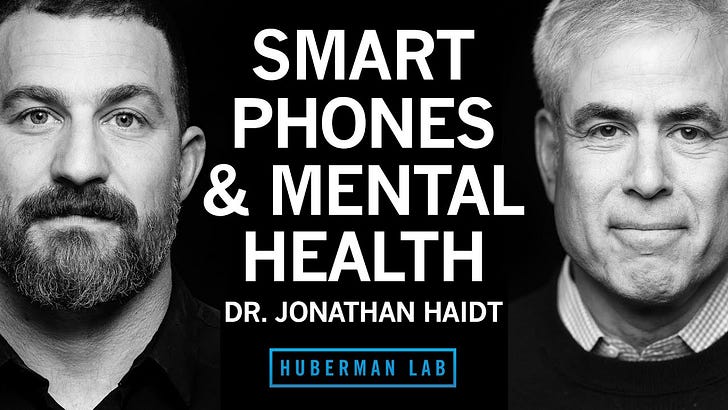#132 - Notes on Learning, Skills and Social Media
Education Coffee is a 2xWeekly Newsletter on People, Ideas and Culture.
Why #LearningResearch?
My thinking on learning has evolved considerably over time. I have built on the work of so many educators and researchers. I am grateful to them for the work they do and the time they took from their schedules to document what they saw and observed in a variety of learning environments. In education like in every other field we must build on the work of others. There are teachers, principals and researchers across the world that may have faced the same problems you face today. In this series of #EducationCoffee newsletters I aim to summarize the work of these thinkers in the most accessible way possible. I will add links to help you with further research.
Sebastien Thrun on Skills Based Learning
Sebastian Thrun is a German-American entrepreneur, educator, and computer scientist. He is chief executive officer of Kitty Hawk Corporation, and chairman and co-founder of Udacity. His research on job ready skills and work place courses has shaped my thinking on learning. Here is a summary of his work in education and learning.
Sebastian Thrun, co-founder of Udacity has a transformative vision for learning. His perspective emphasizes:
Personalized & Self-Paced Learning – Thrun believes education should be tailored to individual learners, allowing them to progress at their own speed rather than being confined to traditional classroom structures.
Project-Based & Skills-Oriented Learning – He advocates for hands-on, real-world projects that develop practical skills rather than rote memorization or standardized tests. His work with Udacity’s nanodegrees reflects this belief, focusing on employable skills in tech-driven fields.
AI & Technology-Driven Learning – Thrun sees artificial intelligence as a key driver in making education more adaptive, scalable, and personalized, enabling better learning outcomes.
Lifelong Learning & Career-Focused Education – He believes education should be an ongoing process, evolving with technological advancements and job market needs. He often criticizes traditional universities for being slow to adapt.
Democratization of Education – Through online learning platforms, Thrun envisions making high-quality education accessible to a global audience, reducing barriers like cost and geography.
His ideas challenge conventional education models, focusing on flexibility, industry relevance, and the integration of AI to improve learning experiences.
Haidt on the Social Media Generation
Jonathan Haidt is a social psychologist at New York University’s Stern School of Business. He received his Ph.D. from the University of Pennsylvania in 1992. Haidt’s research examines the intuitive foundations of morality, and how morality varies across cultural and political divisions. Haidt is the author of The Happiness Hypothesis (2006) and of the New York Times bestsellers The Righteous Mind (2012) and The Coddling of the American Mind (2018, with Greg Lukianoff). He has given four TED talks. In 2019 he was inducted into the American Academy of Arts and Sciences. Since 2018 he has been studying the contributions of social media to the decline of teen mental health and the rise of political dysfunction. His next book is The Anxious Generation: How the Great Rewiring of Childhood is Causing an Epidemic of Mental Illness. It will be published March 26, 2024.
The Impact of Moral Psychology on Education – Haidt’s research explores how moral foundations influence ideological divides in education. He argues that shifts in cultural attitudes, particularly in higher education, have contributed to increased emotional distress and political polarization among students. His work highlights how differing moral intuitions shape campus debates and the broader educational climate, often leading to conflicts over free speech, diversity, and inclusion.
The Dangers of “Safetyism” in Learning Environments – In The Coddling of the American Mind, Haidt critiques the rise of “safetyism,” where students are shielded from discomfort, opposing views, and intellectual challenges. He argues that practices like trigger warnings, safe spaces, and the avoidance of controversial topics can undermine resilience and critical thinking. Drawing on psychological research, particularly cognitive behavioral therapy (CBT), he suggests that students should be encouraged to confront difficult ideas to develop emotional and cognitive strength.
Social Media and Adolescent Mental Health – Haidt links the rise of anxiety, depression, and polarization in students to the widespread adoption of social media, especially after 2010. He argues that excessive screen time, digital validation-seeking, and reduced face-to-face interactions have negatively impacted adolescent mental health. His research suggests that schools should implement stronger media literacy programs, delay social media use among young students, and promote offline social interactions to counteract these effects.
The Decline of Free Play and Risk-Taking – Haidt emphasizes the role of parenting and early childhood experiences in shaping students’ ability to handle challenges. He argues that the decline of unsupervised play and overprotective parenting styles have led to students being less resilient in the face of academic and social adversity. To address this, he advocates for education systems to incorporate experiential learning, encourage debate, and create environments that allow students to take risks and learn from failure.
Revitalizing Classical Liberal Education – Haidt calls for a return to educational principles that emphasize free inquiry, open debate, and character development. He argues that universities should actively promote viewpoint diversity, teach students how to engage with different perspectives, and foster intellectual humility. His work suggests that institutions must reform policies to prioritize academic freedom and critical thinking over ideological conformity, ensuring that students graduate with the skills necessary to navigate complex and diverse social environments.
Notes and Links
Sebastien Thrun Website – http://robots.stanford.edu/
Sebastien Thrun Research – http://robots.stanford.edu/research.html
Sebastien Thrun Linkedin – https://www.linkedin.com/in/sebastian-thrun-59a0b273/
Johnathan Haidt Books – https://www.goodreads.com/author/show/55727.Jonathan_Haidt
Johnathan Haidt Website – https://jonathanhaidt.com/bio/
Abhishek Shetty






I've heard a couple of Jonathan Haidt's lectures on youtube and they've been so informative in understanding the psychology behind certain behaviours